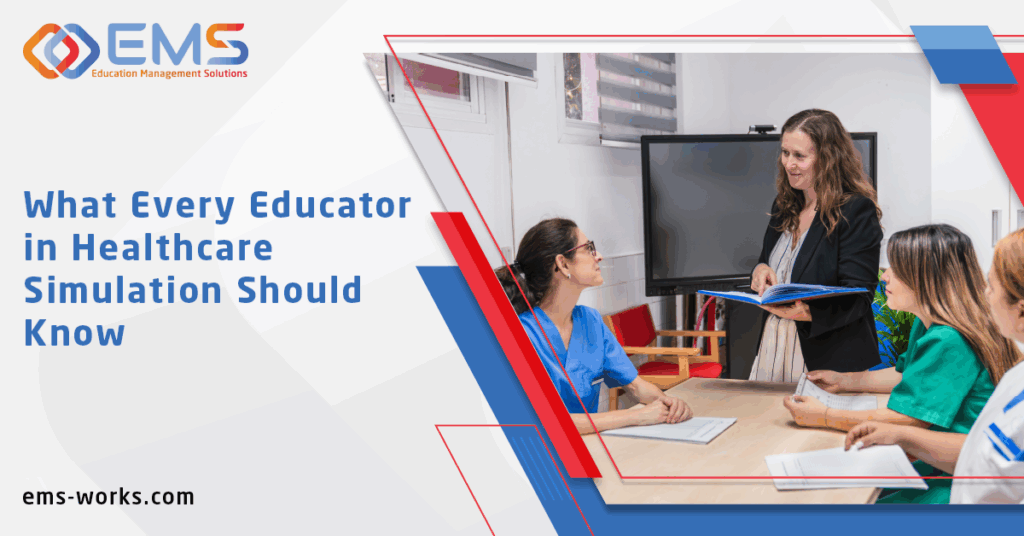Healthcare simulation has become an essential tool for advancing clinical education and ensuring optimal patient outcomes. As a simulation educator, staying current with the latest standards and best practices is paramount—not just for effective training, but for maximizing the return on investment and maintaining operational efficiency across your simulation program.
If you’re looking to critically elevate your simulation program, improve learner engagement, and achieve measurable value, this post covers the essential competencies, top resources, and cutting-edge professional development opportunities simulation educators can leverage. Read on to discover actionable strategies that support the optimization of healthcare simulation programs.
Core Competencies for Healthcare Simulation Educators
Staying up-to-date on educational competencies is no longer optional—it’s imperative for achieving superior educational outcomes, optimizing staff and student performance, and sustaining cost-effective training programs. The following are critical areas in which every simulation educator should demonstrate expertise to maximize training impact and operational efficiency:
- Scenario Design and Implementation: Developing evidence-based, high-fidelity scenarios that align with current clinical and operational challenges.
- Facilitation and Debriefing Techniques: Applying advanced methods for feedback and debrief, such as using facilitator competency rubrics for assessment and improvement.
- Technology Integration: Leveraging both traditional and emerging technologies—including XR/AR platforms, screen-based simulation, and AI-driven analytics—enhances engagement and delivers measurable ROI.
- Program Evaluation: Utilizing structured evaluation strategies to validate simulation effectiveness and support accreditation requirements.
- Interprofessional Collaboration: Conducting multidisciplinary training to improve teamwork, communication, and patient safety metrics.
Resources for Simulation Leaders
Access to comprehensive, actionable resources is essential for educators striving to deliver efficient, high-impact training. Key resources they can leverage to improve their simulation programs include:
- Facilitator Competency Rubrics (FCR): Freely available rubrics empower educators to assess and standardize facilitation and debriefing practices, ensuring consistently effective learning experiences.
- Scenario Libraries: Customizable scenario templates accelerate development while controlling costs and ensuring curriculum alignment.
- Data-Driven Analytics: Modern simulation management platforms provide educators with actionable insights on learner performance and program efficiency, enabling informed decision making and process optimization.
Professional Development: Workshops and Symposia
Recent global initiatives and industry trends highlight the importance of targeted professional development opportunities:
- Simulation Educator Certification Workshops: Specialized programs, such as the Society for Simulation in Healthcare’s Certified Healthcare Simulation Educator (CSHE) certification program, and workshops —either delivered virtually and in person—help educators refine scenario design, debriefing techniques, and technological implementation.
- Interprofessional Training Symposiums: Collaborative simulation conferences enhance educator skills in leading multidisciplinary learning environments and improving real-world team performance.
- Technology Integration Bootcamps: Hands-on training in the adoption of XR, virtual simulation, and AI platforms supports cost-effective implementation and broad educational reach.
Meeting the Needs of Diverse Institutions
All simulation educators experience unique challenges. Implementing best practices—in educator competency, resource utilization, and professional development—enables organizations to:
- Achieve accreditation, streamline curricula, and enhance learner outcomes.
- Standardize staff training, minimize risk, and improve operational efficiency.
- Develop mission-critical skills while maintaining strict budget oversight.
By embracing the latest competencies, utilizing proven educational resources, and investing in continuous professional development, simulation educators can deliver measurable improvements in performance and patient outcomes. A strategic, results-driven approach ensures operational excellence, cost control, and maximum impact across the spectrum of healthcare education and training environments.
Ready to connect, learn, and collaborate with other simulation education experts? Become an EMS partners and you can discover exclusive workshops, networking opportunities, and hands-on experiences at the Annual EMS User Summit—visit the EMS Summit page to learn more!

